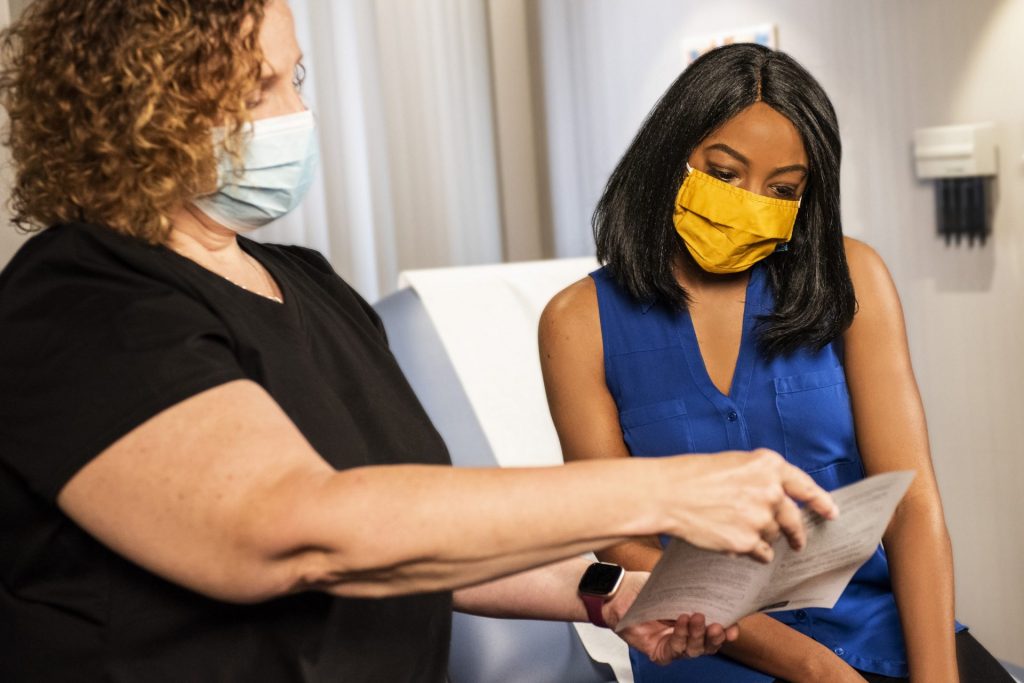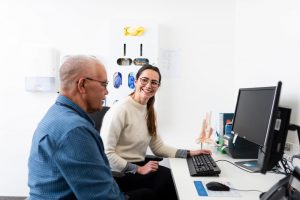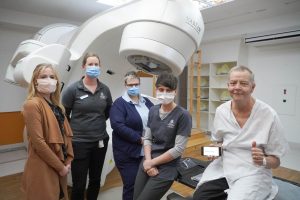Having surgery is a significant event in anyone’s life.
For patients, there’s a fine balance to be walked in the leadup – having enough information to feel informed about their operation, but not so much as to feel overwhelmed.
New findings from researchers at Central Adelaide Local Health Network (CALHN) and The University of Adelaide could help patients seek their desired level of information in the lead-up to surgery.
Their study suggests that providing patients with a list of suggested questions – called a question prompt list – can help them feel better informed and more comfortable.
Empowering patients
Under the supervision of The Queen Elizabeth Hospital surgeon and researcher Professor Guy Maddern, medical student and PhD candidate Jesse Ey is first author on the paper.
Jesse said that even when communication with patients is of a high standard, patients can leave the hospital with patchy understanding, incomplete memory of the conversations had, and feelings of anxiety.
“We are taught in medical school that while the doctor may have more specific knowledge about disease, diagnostics, and interventions, the patient knows themselves and their wellbeing better than anyone,” Jesse said.
“This is why it is so important to identify strategies to make it possible for patients to share their questions, thoughts and values, and make their own decisions.”
Do I need this operation?
To conduct their study, the researchers focused on patients seeing a general surgeon for a pre-surgical consultation.
Half of the patients were provided standard consultation, including all the usual aspects of high-quality care provided at CALHN.
The other patients also received a standard consultation, but in addition were provided with the question prompt list, which included the following:
- Do I need this operation? Why/Why not?
- What exactly are you going to do?
- Who will perform the operation?
- What are the potential risks and complications?
- What happens if I don’t have an operation?
- How long do I have to decide?
- What will the recovery be like: eating/drinking/toilet/driving/working?
- Where can I find more information?
The questions were provided on paper so the patient could refer to them during their appointment.
More questions, better information recall
Patients who had received the question prompt list were found to ask more questions and were able to remember the information better. Provision of the list didn’t alter talk time, mutual eye gaze (a measure of engagement), patient anxiety or length of time required for consultation.
Patients who didn’t receive the question prompt list were less likely to correctly remember the information about their surgical treatment.
Jesse said the study results are promising.
“When a patient has better understanding of their illness, they are better equipped to make an informed decision about whether surgery is the right decision for them,” Jesse said.
“This gives the patient ownership and accountability for their health care, and leads to reduced anxiety, improved satisfaction and better adherence to their management plan, ultimately improving patient outcomes and recovery.”
Professor Maddern, Jesse and their colleagues have other studies planned to continue to explore aspects of surgical care, including investigation of surgical systems, non-technical skills in surgery, and patient empowerment strategies.
Why do clinical research?
Jesse is committed to his joint studies as both a medical student and a PhD candidate.
“Being involved with research provides opportunities for me to investigate complex problems, and adds to both my own personal understanding and to collective knowledge,” Jesse said.
“By investing resources into medical research, we are able to continue moving modern medicine forwards, and support health systems in operating efficiently and expertly so more patients receive high quality care.”
Read the research
Click here to read a summary of the published British Journal of Surgery paper.
Learn more about the background to this study in our previous news story: Empowering patients in surgical consultations with question prompt lists.
Photo by CDC on Unsplash.



